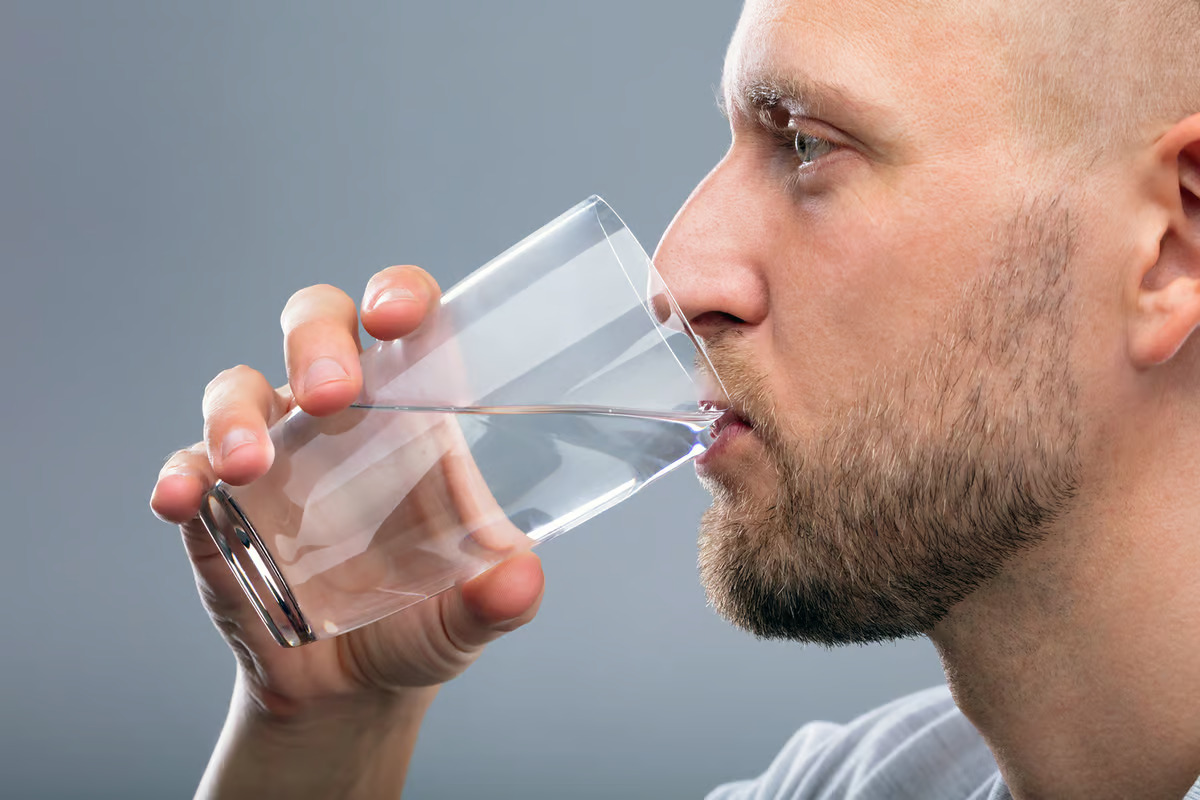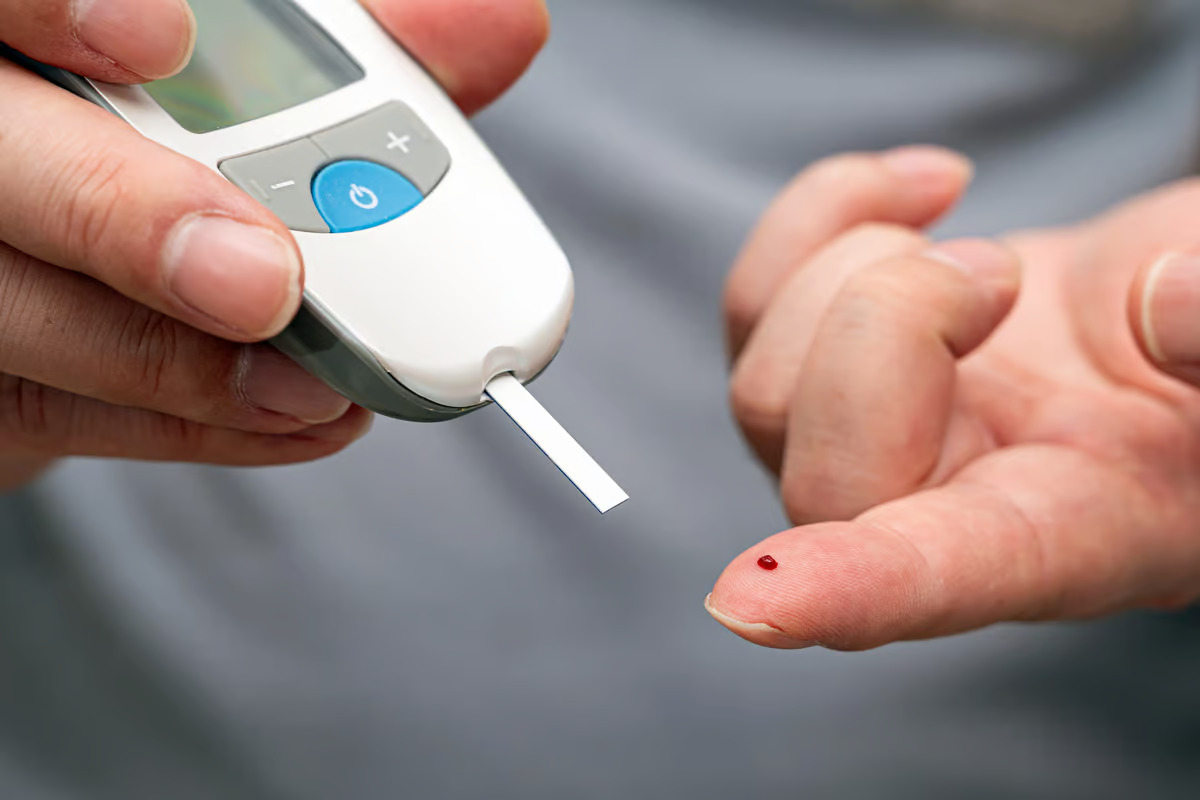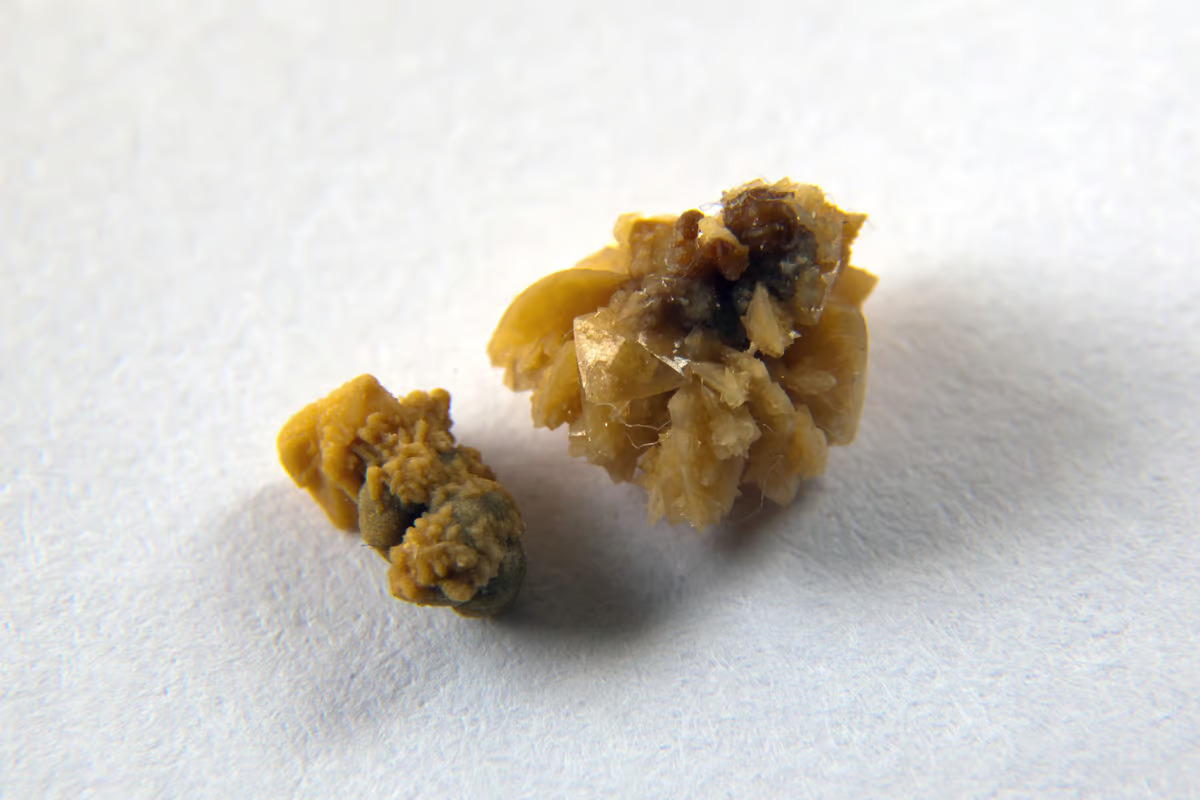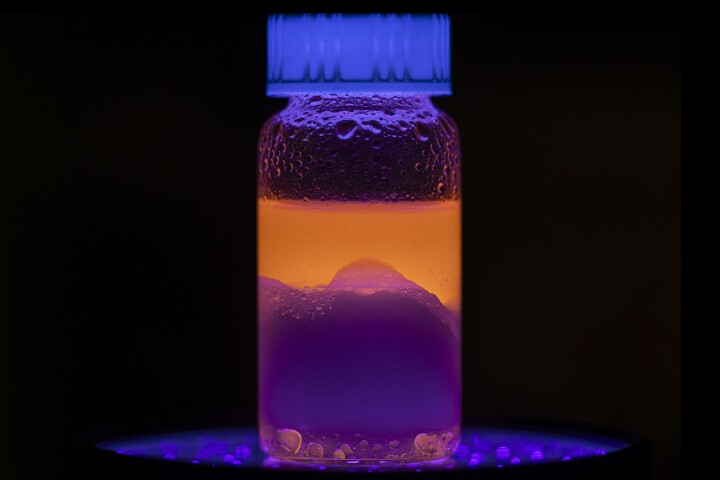 Does drinking more water have health benefits? A new study answers the question. Depositphotos –
Does drinking more water have health benefits? A new study answers the question. Depositphotos –
Our bodies are composed of up to 60% water. This important liquid contributes to a number of essential functions, such as regulating body temperature, flushing out waste, acting as a shock absorber for the brain and spinal cord, making saliva, and lubricating the joints.
We’re advised to drink a certain amount of water each day to prevent dehydration, which can interfere with the body’s ability to perform these functions. But, beyond that, what benefits does drinking water – specifically, drinking more of it – have on our overall health? In a new study led by the University of California San Francisco (UCSF), researchers looked for an answer to that question.
“For such a ubiquitous and simple intervention, the evidence hasn’t been clear, and the benefits were not well established, so we wanted to take a closer look,” said Benjamin Breyer, MD, chair of the UCSF’s Department of Urology and the study’s senior author.

Amounts vary depending on who you ask, but the US National Academy of Medicine suggests a daily fluid intake of about 13 eight-fluid-ounce cups (3 L) for men aged 19 to 30 and nine (2.1 L) for women of the same age. Note the use of the word fluid, which includes drinking water and other beverages.
The researchers systematically reviewed the data from previous randomized clinical trials that looked at how increasing water intake (except for one study, where water intake was decreased) affected health and health-related issues. The studies assessed various populations, and recurring primary endpoints included weight loss, fasting blood glucose level, headache, urinary tract infection (UTI), and kidney stones. Here’s what the researchers found.
Weight loss
In three studies, adults with overweight and obesity randomized to drink 51 fl oz (1.5 L) of water per day before meals for a period of 12 weeks to 12 months had greater weight loss compared with those in the control groups: 100%, 87%, and 44% more weight versus control groups. In a fourth study with 38 participants, however, drinking 68 fl oz (2 L) of water a day wasn’t associated with weight change over a six-month period. This study was distinct from the other three as some of its participants were adolescents.
Fasting blood glucose
In a study of 40 type 2 diabetics diagnosed recently (within the past five years), drinking 8.5 fl oz (250 mL) of water before breakfast, 17 fl oz (500 mL) before lunch, and 8.5 fl oz before dinner for 8 weeks produced a significant difference in fasting blood glucose levels (–32.6 mg/dL) when compared with the control group (5.3 mg/dL). While that’s a large drop in fasting blood glucose, it’s not clear from the study whether it was due to hemodilution; literally, watering down of the blood. Additionally, because the water intake was before meals, the benefits observed might’ve been a result of decreased food intake or weight loss (which did occur in the treatment group).
In contrast, another study of 60 participants found that drinking 18.6 fl oz (550 mL) of water within two hours of waking and 18.6 fl oz before bedtime for 12 weeks actually increased fasting blood glucose levels by around 0.6 mg/dL. This study involved adult participants who weren’t receiving medication and/or lifestyle modification for diabetes.

Headache
Two studies assessing the effect of increasing water intake by 50.7 fl oz (1.5 L)/day for three months in patients with recurrent headaches yielded conflicting results. One, which recruited 102 adults, found that the intervention was associated with improvement in the participants’ Migraine Specific Quality of Life (MSQL) score by 4.5 points and reporting fewer days with at least moderate headache; however, the findings weren’t statistically significant. Further, only 21% of participants in the intervention group completed the trial.
Another study used the same intervention in adults with migraine or tension headache, and the effect was not statistically significant on MSQL, medication use, number of episodes, mean headache intensity, or hours of headache. Although, the sample size for that study was low at 18 participants.
Urinary tract infection (UTI) and overactive bladder
In a randomized trial, 140 premenopausal women with recurrent UTIs who normally drank less than 50.7 fl oz (1.5 L) of fluid a day increased their water intake by 50.7 fl oz/day. Drinking more water each day was associated with a lower mean number of UTI episodes over a 12-month period, as well as fewer treatments with antibiotics, and more time between episodes.
Another study investigated whether increasing water intake altered the pathogenic bacteria found in the urinary tract. Fourteen underhydrated (drinking less than 50.7 fl oz/d) premenopausal women increased their daily water intake to 64 fl oz (1.9 L), but there was no difference in bacteria between those who drank more water and those who didn’t: 7% versus 8%, respectively. Yet another study randomized 24 adults with overactive bladder, which produces a sudden, uncontrollable urge to urinate and examined the effect of increasing or decreasing fluid intake on symptoms. Decreasing fluid intake by 25% was associated with reduced frequency of urination, urgency to urinate, and nocturia or frequent nighttime urination.
Kidney stones
For a long time, those with or prone to kidney stones have been urged to drink a lot of water to either prevent them or help pass them. The researchers looked at two studies that examined the association between increased water intake and kidney stone risk. One study of healthy adults aged 25 to 50 compared drinking 68 fl oz (2 L) of additional water per day to a control group and found that the risk of kidney stone formation went down in the treatment group and increased in the control group.
Then there was a study of 221 patients who, after a first episode of kidney stones, were either asked to increase their water intake until they urinated 68 fl oz (2 L)/day or not change their water intake. Over five years, the recurrence rate of kidney stones was significantly lower – it dropped by more than half – in the intervention group.

In short, drinking more water was associated with statistically significant results for dropping weight and avoiding kidney stones. Other single studies suggested that drinking more water provided benefits related to headache prevention, UTIs, and diabetes control but didn’t reach statistical significance.
The researchers say that the low cost and extremely low likelihood that water will cause adverse effects should encourage more well-designed studies to assess the health benefits suggested in the single studies they reviewed.
“The amount of rigorous research turned out to be limited, but in some specific areas, there was a statistically significant benefit,” Breyer said. “To our knowledge, this is the first study assessing the benefits of water consumption on clinical outcomes broadly.
“We know that dehydration is detrimental, particularly in someone with a history of kidney stones or urinary infections. On the other hand, someone who suffers from frequent urination at times may benefit from drinking less. There isn’t a one-size-fits-all approach for water consumption.”
The study was published in the journal JAMA Network Open.
Source: UCSF View gallery – 4 images
–
























